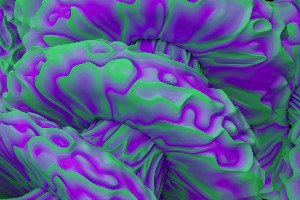Mohammad Aizat Jamaludin, Nur Liana Izzaty Rosli, Muhammad Irhammudin Ibrahim
Islamic Media Algorithms and Halal Perception in Malaysia
Introduction
Islamic media algorithms and halal perception in malaysia. Examines how algorithms and AI distort Halal perception online, leading to misinformation in Islamic content. Proposes an Islamic media ethics framework for authentic digital discourse, focusing on Malaysia.
Abstract
In today’s algorithm-driven digital age, Islamic and Halal content is often promoted not for its authenticity or quality, but for its ability to attract engagement, frequently amplified by deceptive artificial intelligence (AI) systems. This article examines how viral trends and algorithms shape public perceptions of the Halal concept online, particularly through sensational, divisive, or misleading Islamic content. The study aims to assess Muslim users’ responses to online Halal-related material and evaluate the influence of algorithmic curation on their perceptions and decisions. Using a qualitative approach such as content analysis, findings reveal that platform algorithms contribute to misinformation, confusion, and a distorted understanding of Halal principles. Furthermore, the absence of specific digital ethics guidelines for Islamic-Halal content enables misuse of the “halal” label. This paper proposes an Islamic media ethics framework grounded in Maqasid Shariah and digital media literacy to promote authentic, responsible, and positive online discourse. The study underscores the need for proactive governance and collaboration between media actors, policymakers, and Halal authorities to safeguard the integrity of Islamic content in the digital sphere.
Review
This paper, "Islamic Media Algorithms and Halal Perception in Malaysia," addresses a timely and critically important issue at the intersection of digital media, religious authenticity, and public perception. The authors compellingly argue that the current algorithm-driven landscape, often amplified by deceptive AI, prioritizes engagement over the genuine quality of Islamic and Halal content, leading to the proliferation of sensational, divisive, or misleading information. By focusing on how viral trends reshape public understanding of Halal, particularly within the specific context of Malaysia, the study highlights a significant and under-explored challenge to religious integrity in the digital age. This work's premise is highly relevant given the pervasive influence of social media on belief systems and consumer choices within Muslim communities globally. Employing a qualitative approach, specifically content analysis, the research provides robust findings that illustrate how platform algorithms contribute directly to misinformation, confusion, and a distorted comprehension of foundational Halal principles. A particularly insightful finding is the absence of clear digital ethics guidelines for Islamic-Halal content, which effectively enables the misuse and mislabeling of "halal" products or concepts online. While the abstract specifies "content analysis" as the method, elaborating on the specific types of content examined and the analytical framework employed would further strengthen the methodological transparency. Nonetheless, the identified algorithmic biases and their detrimental impact on religious literacy form a solid empirical basis for the paper's subsequent propositions. The study culminates in a highly constructive and actionable proposal: an Islamic media ethics framework grounded in Maqasid Shariah and digital media literacy. This framework represents a significant theoretical and practical contribution, offering a principled path towards fostering authentic, responsible, and positive online discourse. The authors' call for proactive governance and robust collaboration among media actors, policymakers, and Halal authorities underscores the practical implications of their work. This paper not only sheds light on a pressing problem but also provides a clear direction for safeguarding the integrity of Islamic content in the digital sphere, making it an essential read for scholars, practitioners, and policymakers concerned with digital ethics and religious authenticity.
Full Text
You need to be logged in to view the full text and Download file of this article - Islamic Media Algorithms and Halal Perception in Malaysia from Journal of Halal Science and Management Research .
Login to View Full Text And DownloadComments
You need to be logged in to post a comment.
Top Blogs by Rating
The Brain's Ultimate Illusioni...
By Sciaria
Beyond the Blueprint: Unveilin...
By Sciaria
Deep Time's Echoes: Unearthing...
By Sciaria
Favorite Blog
The Unfakeable Truth Machine:...
By Sciaria
Embrace the Pause: The Surpris...
By Sciaria
Are Your Emojis Truly Connecti...
By Sciaria





